Established in 1990, the current PhD programme in Design aims to develop competences and skills to carry out high quality research in design as a specific field of inquiry.
In this respect, candidates will be invited to reflect on:
- the nature of design, with its aesthetic, performance and meaning values, as well as its capability of being an agent of social change;
- to strengthen the disciplinary core of design;
- to develop and share knowledge and tools able to distinguish the designer from other figures involved in design activity.
The PhD programme in Design is structured into various research fields, which correspond to specific research teams within the Design Department.
In order to coordinate research activity over a wide range of topics, teams cluster around three Sections, which are:
- Design and Cultures
- Products, Strategies and Services
- Design for Environments, Landscape and Mobility
(PhD candidates are affiliated to the Section of their Supervisors).

